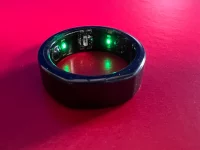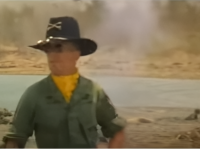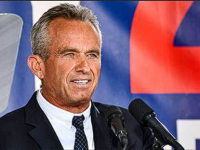Queensland Theatre Company artistic director Wesley Enoch on work, faith and family

GREAT DIRECTOR. Cookie, a Murri woman, has 15 children. She believes in eternal damnation, and in her well-thumbed Bible has underlined Proverbs 13:24, from which springs the paraphrase “spare the rod, spoil the child”.
She finds solace in the Stradbroke Island and Cairns Christian communities, and ideas of spirit, and always tithes money to church.
Cookie has her first child, a boy, Joey, to a World War II GI. But the American dies in service before they can marry. So the story goes.
“The truth [in this case] isn’t actually important,” says Cookie’s grandson, the playwright, director and cultural provocateur Wesley Enoch, a Noonuccal Nuugi man from Stradbroke Island, or Minjerribah, off the coast of Brisbane in Quandamooka country. “The stories you repeat, and which keep on going,” says Enoch, “that’s what it’s all about.”
After the US serviceman disappears, single mother Cookie is introduced to a Noonuccal Nuugi man, Enoch’s grandfather. “Is it an arranged marriage? We don’t know,” says Enoch, who in 2010 became the Queensland Theatre Company’s sixth artistic director and the first Indigenous head of an Australian state theatre company. “Is it love? Who knows. Is it an act of desperation? Who knows, but that’s what happened.”
“WHEN ANYONE TRIES TO BE DOGMATIC ABOUT SPIRITUALITY, I GO, ‘YOU ARE A CHILD TRYING TO EXPLAIN SOMETHING BEYOND OUR UNDERSTANDING.’ ” – WESLEY ENOCH
Enoch’s father, Douglas James Enoch, the first of Cookie’s 14 children with her husband, 12 of whom survive to adulthood, becomes a plant operator as expected, operating machinery and driving bulldozers and graders in Stradbroke’s sandmining pits. The pits have always been environmentally controversial and conflicting to work in, given Indigenous spiritual connection to the land that pre-dates the white man’s island industry, missions and benevolent societies by millennia.
“It provided a living for so many of my family,” says Enoch, who was born in a Brisbane hospital in 1969 but spent his first few years in a mining company home on Stradbroke. “Without sandmining, there’s no way my family would have been together.”
Yet the death of Enoch’s grandfather in his early 40s – when Doug is 17 – prompts Cookie to move the younger children from the island up to Cairns to be with other family members. Cookie dies in 1991. Some 400 people pack the church, the women in bright floral dresses, the boys painted and dancing. The older generation sings “Delta Dawn”.
Cookie’s spirit inflects her playwright grandson’s work to come, from The 7 Stages of Grieving starring and co-written with Deborah Mailman, to The Story of the Miracles at Cookie’s Table starring Leah Purcell, to I Am Eora, in which Miranda Tapsell plays the nurturer Barangaroo. All tales deal with colonisation, dispossession, unequal rights and the stolen generations in nuanced stories accessible to mainstream audiences. As a heavy framing device in Miracles, children named for holy Christian virtues such as Faith, Hope and Joy are removed one by one from their Aboriginal mother. (Enoch doesn’t know of any children removed in his family.) Traces of the poet Oodgeroo Noonuccal, Enoch’s great-aunt, may also be detected. Enoch’s plays are often interested in maternal lines, death as a form of rebirth and rejuvenation, and rusted-on, unquestioned faith.
A greater force
Wesley James Enoch’s own evocative birth name is lasting proof of the evangelising Christian influence on many Indigenous people, including Cookie and much of the paternal side of his family, but also the faith of his Caucasian mother, Lyn, whom his father met at a party on Stradbroke and won a coin toss to walk home.
“If you believe my mother, my maternal grandmother was a nightclub singer who had a trucking business,” says Wesley Enoch. “I have a picture of my [maternal] grandmother sitting on the bed, watching the Saturday morning racing, phoning bets in, eating chocolates while she’s got her white coat on, while her de facto was out driving trucks. My mother’s response to all of that was to become Christian at a very young age.”
Enoch is sitting now in the rehearsal space of Sydney’s Belvoir St Theatre, preparing a hybrid series of cabaret question-and-answer nights with Indigenous performers that will run on stage here until August. He wears a black T-shirt with a white abstract design and sports a little stubble. He will talk politics, identity, joy and sadness with the performers.
Enoch once read the Bible himself, cover to cover. It took him three years. He’s wary of extreme belief, but can reconcile the duality of Indigenous and Christian spirituality. “I believe there is a greater force than us,” he says. “I think that the words we give it – be it Biami [an ancestor spirit], the Rainbow Serpent, Jesus, God, Yahweh, Allah – it’s like a child trying to explain physics; we don’t have the language for it. Every civilisation tries to explain it the best way they can. When anyone tries to be dogmatic about it, I go, ‘You are a child trying to explain something beyond our understanding; you should, like a child, be always cast as the learner. Not as the teacher.’ ”
Now 45, Enoch thinks of himself as the sum of all his histories. One strand has been strongly reinforced by his family counting back at least eight generations as part of a 16-year battle that in 2011 was victorious, with the Federal Court granting the Quandamooka people native title recognition over most of North Stradbroke.
But there is also Irish, English and Scottish blood, and Danish and Spanish blood going back three or four generations on his mother’s side. There was a shipwrecked Philippine fisherman great-great-grandfather named Fernando, and escapees from the blackbirding trade in the South Pacific, who married into his Quandamooka family on Stradbroke. He is also related to different Kandju clans further north in Queensland.
The Enochs use the term Aboriginal, never half-Aboriginal, because you “can’t be half-pregnant”, while acknowledging the rest of the family heritage. “I come from a mixed heritage, and I can’t hate half of my family, you just can’t do that – well, you can, but you’d need therapy.”
The News Corp columnist Andrew Bolt questioned the right of Enoch’s older sister, Queensland ALP candidate Leeanne Enoch, to define herself as Noonuccal Nuugi, inaccurately questioning her Aboriginality and “insisting on a racial difference the eye cannot even detect”. Says Wesley Enoch: “Andrew Bolt is saying he is indigenous because he was born to this country. Yes, if you want to use that term, yes. I heard someone’s response that he’s as indigenous as the cane toad: yes, you’re born here, but you can become a pest.”
The “next major narrative” will be an inter-generational conflict, he says, with more Indigenous people currently under 35 than over 35. Sitting in Belvoir’s dressing room the next day, I ask what he meant by conflict. “There has been a smaller group holding elder status, which means culture has been held in stasis.” Stereotypes of Aboriginal people as living in regional and remote areas are already breaking down given that 70 per cent live in urban areas, he says.
Enoch doesn’t shy away from controversy. Giving the Philip Parsons Memorial Lecture in December, while emphasising “no malice or intention to defraud artists”, Enoch thought it “immoral for people on full-time salaries in companies with multimillion-dollar turnovers to be asking artists to do work for free or less than the agreed award”.
The response was swift: Melbourne Theatre Company artistic director Brett Sheehy immediately declared Enoch “dead wrong”, saying MTC established the Neon Festival of Independent Theatre with artists having full curatorial control, receiving set-up costs and a subsidy, as well as every box-office dollar. Sheehy said Enoch’s statements were “potentially damaging” to MTC’s reputation.
Was Enoch taken aback by the response? “I was a bit, only because you go, ‘How can anyone disagree with that [criticism]?’ It was seen as a very pointed thing. I didn’t want to argue about the artistic merits [of Neon], I just wanted to say it’s a moral issue about hard-fought-for gains for artists suddenly being eroded.” Enoch acknowledges he continues to think and argue “like an outsider” on the inside of running a state theatre company.
Family and community
That night on stage at Belvoir, Enoch’s cabaret guest is Miranda Tapsell, who played one of The Sapphires in the Wayne Blair-directed film of Tony Briggs’s story of his Yorta Yorta mother, sister and cousins who form a pop group and tour Vietnam during the war. Enoch directed the stage version of The Sapphires at the MTC in 2004 and Belvoir St in 2005. At 17, Tapsell sat in the audience and watched Deborah Mailman play a Sapphire.
“Have you ever wished you weren’t Aboriginal?” Enoch asks. Darwin-born Tapsell, whose family is Larrakia-Tiwi – her father a non-Indigenous man born in Cronulla – answers: “Yeah, I think so, sometimes. Lots of girls want whatever they don’t have – blonde hair, blue eyes, the opposite of what you’ve got, rather than being grateful for what you actually have. But now I’m starting to embrace myself. I’ve always been proud to be Aboriginal; I’ve never been ashamed to be Aboriginal. But I used to think, ‘How would people think of me if I didn’t look this way?’ ”
Tapsell sings a sweet number from The Little Mermaid as a song that gives her joy. She also endeavours to sing Jim Reeves’s “Have I Told You Lately”, a song that meant much to her late grandmother, who died of emphysema. But she can’t get through the second verse; the emotions are too much. Enoch puts his hand on her shoulder and reassures her it’s okay: nine days earlier, he buried his father.
Doug Enoch died of lung cancer, aged 65. In late March, Wesley and his two younger brothers dressed the body for the funeral and, with their uncles, accompanied by clap sticks, sang their father onto the 9am Big Red Cat vehicular ferry on his final journey to Stradbroke. There was a wake at Dunwich Community Hall, where Quandamooka people celebrated their native title win three years earlier. “We had a very tumultuous relationship in my younger years,” says Enoch, “and as we got older, we found ways of coming closer. To watch my father become a grandfather was quite a healing thing in our relationship.”
Australian Ballet artistic director David McAllister was warmly welcomed as Enoch’s life partner at the funeral. What’s it like to be in a relationship with another creative person? “It’s fantastic,” Enoch jokes. “Just keep him in Melbourne; it’s fine.” The pair have been together six years and the distance – Brisbane to Melbourne – is “perfect, it’s great. We’ve both got big jobs.” It’s not unusual for them to catch up in different cities around the country.
Enoch is the more argumentative, McAllister more conciliatory. “We have a tag-team approach to whingeing; we both can’t whinge at the same time about work.”
How did his family deal with his sexuality? “If you were to ask me this question 20 years ago, it was something I wasn’t ready to share with my family in a big way. Not that I was in the closet; we just never talked about it,” he says. “I’m now 45, I’ve had two major relationships in that 20-odd years. My family are a lot more understanding of it now than they were then. It didn’t stop me being who I was in my family.”
The Aboriginal community has “grown a dialogue of acceptance around a whole range of things – when I see elements of non-acceptance, it plays into class rather than culture”. Enoch says that when he was a young adult his family had “just as much issue with me going to university as me being gay”. His father once flew into a rage when Enoch said: “Oh, Dad, don’t be an idiot.” It was an issue for Doug that he was only educated to year six while his son made it to a university honours degree.
Tackling cultural passivity
Enoch envisages 2016 will be his last year with Queensland Theatre Company. He sees himself becoming a commentator-at-large, drafting an essay on cultural leadership (or the lack of it) for the 10th anniversary of Currency Press’s influential arts Platform Papers series in August. He will argue for a re-examination of arts companies, to ask where the room is for “anarchic and instinctive artists”. “Isn’t it interesting that Barrie Kosky, Benedict Andrews, even Simon Stone at the moment – you go, ‘Will they ever run a company in this country?’ I would argue, ‘No, they won’t.’ ” And he will tackle cultural passivity. “We’re trying to double-guess what the political leadership is wanting, rather than us taking responsibility for it.”
In September, Enoch will direct a QTC remount of Tom Wright’s Black Diggers, based on true tales of Indigenous World War I servicemen, first seen at this year’s Sydney Festival. There was a “national amnesia” after the war that swept aside Indigenous involvement, says Enoch. Now the stories are resurfacing, ripe for retelling.










